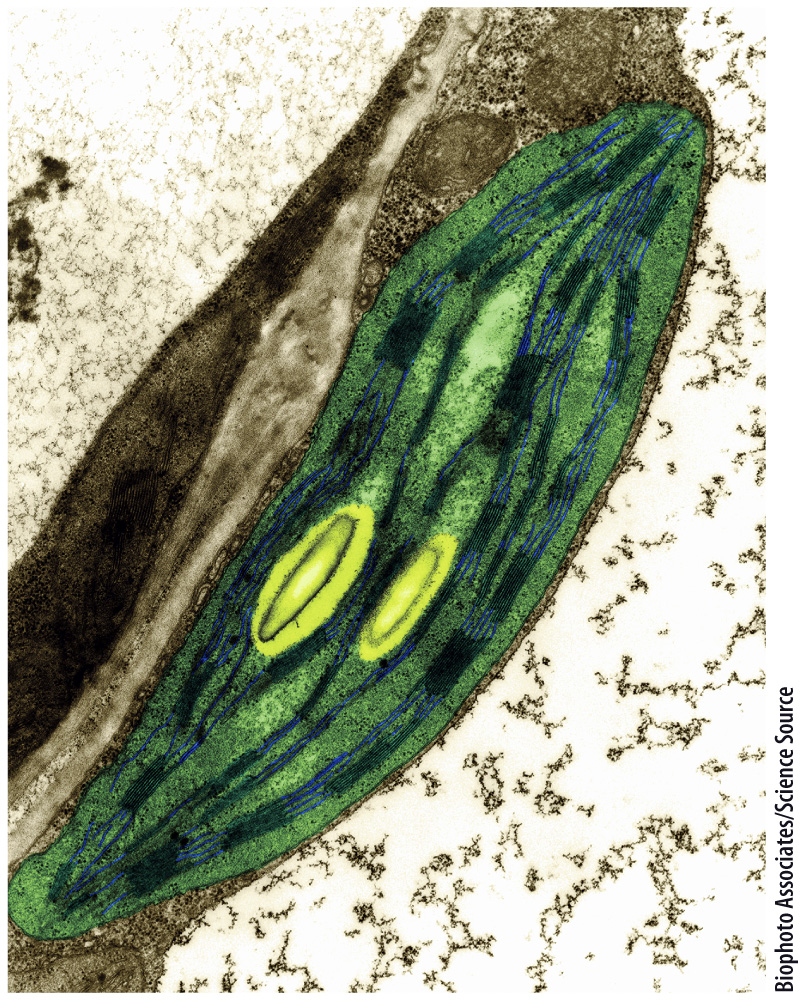Printed Page 159
Carbohydrates are stored in the form of starch.

FIG. 8.7 A chloroplast containing starch granules, shown here in yellow.
The Calvin cycle is capable of producing more carbohydrates than the cell needs or, in a multicellular organism, more than the cell is able to export. If carbohydrates accumulated in the cell, they would cause water to enter the cell by osmosis, perhaps damaging the cell. Instead, excess carbohydrates are converted to starch, a storage form of carbohydrates discussed in Chapter 2. Because starch molecules are not soluble, they provide a means of carbohydrate storage that does not lead to osmosis. The formation of starch during the day provides photosynthetic cells with a source of carbohydrates that they can use during the night (Fig. 8.7).
[Leave] [Close]